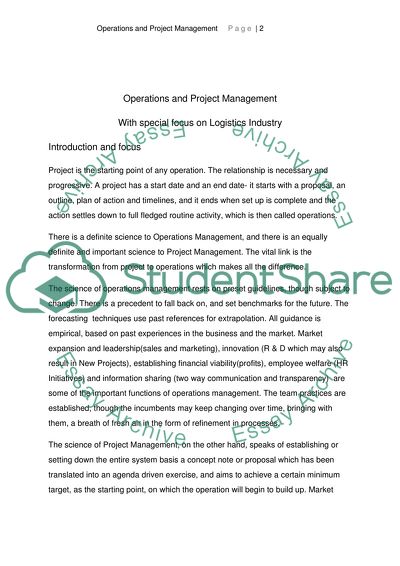Cite this document
(Difference between Operations and Project Management Research Paper - 1, n.d.)
Difference between Operations and Project Management Research Paper - 1. Retrieved from https://studentshare.org/logic-programming/1720440-operations-and-project-management
Difference between Operations and Project Management Research Paper - 1. Retrieved from https://studentshare.org/logic-programming/1720440-operations-and-project-management
(Difference Between Operations and Project Management Research Paper - 1)
Difference Between Operations and Project Management Research Paper - 1. https://studentshare.org/logic-programming/1720440-operations-and-project-management.
Difference Between Operations and Project Management Research Paper - 1. https://studentshare.org/logic-programming/1720440-operations-and-project-management.
“Difference Between Operations and Project Management Research Paper - 1”. https://studentshare.org/logic-programming/1720440-operations-and-project-management.


